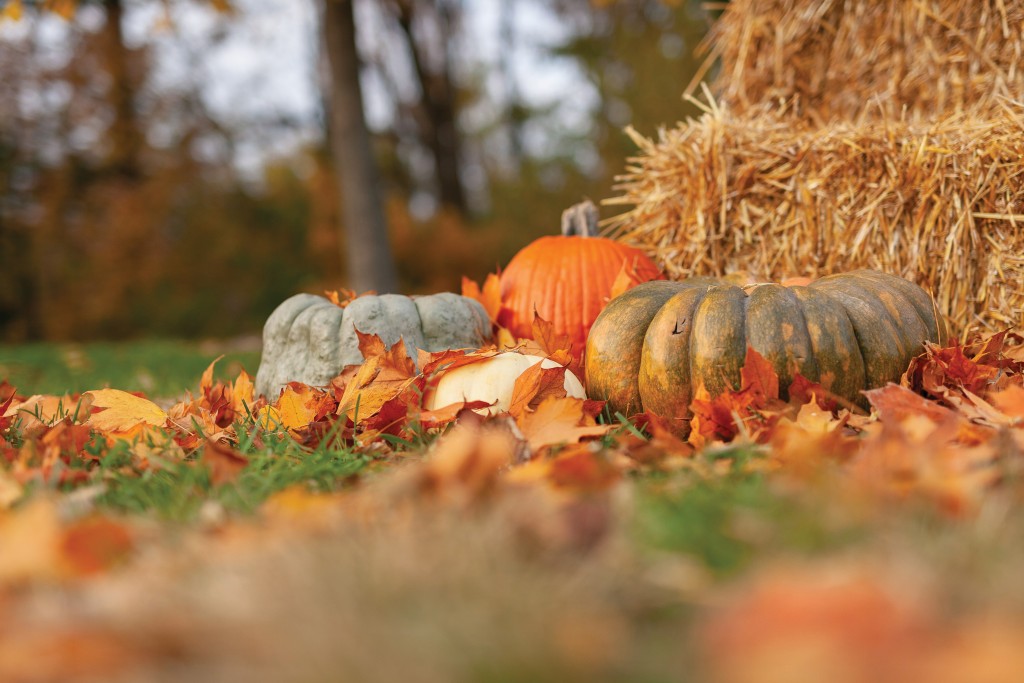In November 1621, at Plymouth, Mass., new pilgrims joined with native Wampanoag Indians to celebrate the harvest. Today, the Thanksgiving feast is imbibed with maternal milk. Neither complexion, nor politics, nor geography should sunder the bond of thanks in united American hearts for turkey on a plate. Yet, while food is enjoyed and prayers are enjoined, few psalters are opened around tables. This article aims to rekindle thanksgiving in the Psalms.
Psalms of Thanksgiving (POTs) are native to believers. Thanksgiving is commanded and offered in words that actually sound like Jews and Judah (see Gen. 29:35). Above all people, Christians, who owe all to the cross, must utter thanks to God.
POTs should be carefully defined. Unlike hymns, which describe God’s constant ways and works, POTs declare and confess what Christ already did for us. POTs celebrate His answer to laments that we prayed. POTs give glory to our Savior, the Lord. Hannah’s happy song (1 Sam. 2:1–10) and Jonah’s joyful prayer (Jon. 2:2–9) are outstanding examples found elsewhere in Scripture, while Psalms 18, 30, 32, 92, 100, 116, 118, and 138 are examples from the Psalter. Some psalms encase glimpses of thanks within them (Ps. 43:4; Ps. 69:30), but laments like Psalm 43 and 69 are not among POTs.
POTs, though personal, are public, not private, songs. They can be used alone as songs (2 Chron. 5:11–14; Ps. 100) but were usually, originally, joined to sacrifice (Lev. 7:11–16; Ps. 118). Within Zion’s courts, before priests and friends, a substitute sacrifice was presented, guilt was transferred, jugulars were slit, and blood was sprinkled before meat was enjoyed in restored fellowship, as saved souls sang their song in thanksgiving before God. Blood-soaked thanks make these melodies grave-sweet.
Psalms of Thanksgiving have three key components whose order may rearrange, reverse, or repeat. The basic shape consists of an intention or invitation to thanksgiving, followed by a lament that describes deliverance from distress by the psalmist’s prayer-answering God, before ending with expressed thanksgiving, often with vows attached. A prime example is unforgettable, Psalm 116. The desire is stated to “call on Him” who “heard his voice” (vv. 1–2); deliverance is recalled, for God saved his “soul from death, eyes from tears…and feet from stumbling” (vv. 8–9); determination is heard in vows to “lift up the cup…call on the name” and “pay my vows” within God’s courts (vv. 12–14). Another example is Psalm 138: desire is expressed (vv. 1–2), deliverance experienced (v. 3), and determination enjoined (by all earthly rulers, vv. 4–8), making this an obvious POT. If Psalm 32, atypically, starts with benediction, a grateful, justified sinner (vv. 3–6) clearly offers and orders thanks (vv. 7–11).
POTs record rescue from varied threats like sickness, death, grief, exile, war, and pains but, most often, persecution. Psalm 107 surveys situations of rescued worshipers called to thanksgiving: those led through deserts, freed from chains, forgiven their folly, saved from shipwreck, fed in famine, quenched in drought, or raised from oppression (vv. 4–42). Deadly dangers, whether personal (Ps. 116), royal (Ps. 18), or national (Ps. 118), once reversed should be rehearsed. Personal details are generally avoided so that each song suits our case. Whichever way God works, there are always psalms for thanks.
POTs can be complex. Don’t lose the thankful thread that runs through Psalm 18. David expresses clear intention (vv. 1–3), enjoys Sinai-style, Red-Sea-style intervention (vv. 4–45), capping all with grateful resolution (vv. 46–50); so “for this I will praise you, O Lord, among the nations, and sing to your name” (v. 49). Psalm 118, in antiphonal style, invokes congregational gratitude (vv. 1–4), for royal and national rescue (vv. 5–18), before proceeding through Jerusalem gates to feast royal slaughter in God’s house (vv. 19–29). Grateful consecration is the right response to the rejected Cornerstone, now become our Peace, in the true Passover feast (1 Cor. 5:7–8).
POTs can be attached to other psalms. What looks like a trustful, harrowed lament in Psalm 22:1–21 breaks out in corporate thanks in verses 22–31. The fact that Jews and Greeks share table fellowship to fill up David’s oath in Zion’s house proves that royal thanks relates less to Kidron Brook (2 Sam. 15:17–23) and more to Calvary’s yoke, for “all the ends of the earth shall remember and turn to the Lord…all the families of the nations shall worship before you” (Ps. 22:27).
POTs have numerous lessons to teach. Whatever trial you face, however deep your pit, expect your Lord to help and record His grace with thanks. Whether saved when lost, restored from backsliding, revived when barren, chastened when wayward, healed from sickness, comforted in sorrow, supplied in poverty, or defended from attack, there is so much material to fill God’s church with thanks. Not all that befalls saints is food for public feasts, yet public declaration ought to follow private salvation. All God’s help retold will be praise-fuel for your friends. Give the Redeemer glory for each early, earthly release.
Did thankful pilgrims at Plymouth’s harvest home commemorate God’s grace in bountiful crops? Small wonder Paul’s writings reverberate with thanks for grace enjoyed in Christ (2 Cor. 4:15, 9:11; Eph. 5:4; Phil. 4:6; Col. 2:7, 4:2; 1 Thess. 3:9; 1 Tim. 4:3–4). A sweeter cup is tasted around the table of our King, and a far more glorious feast awaits the sight of Christ, with God’s good grain gathered in (Rev. 7:9–17).
